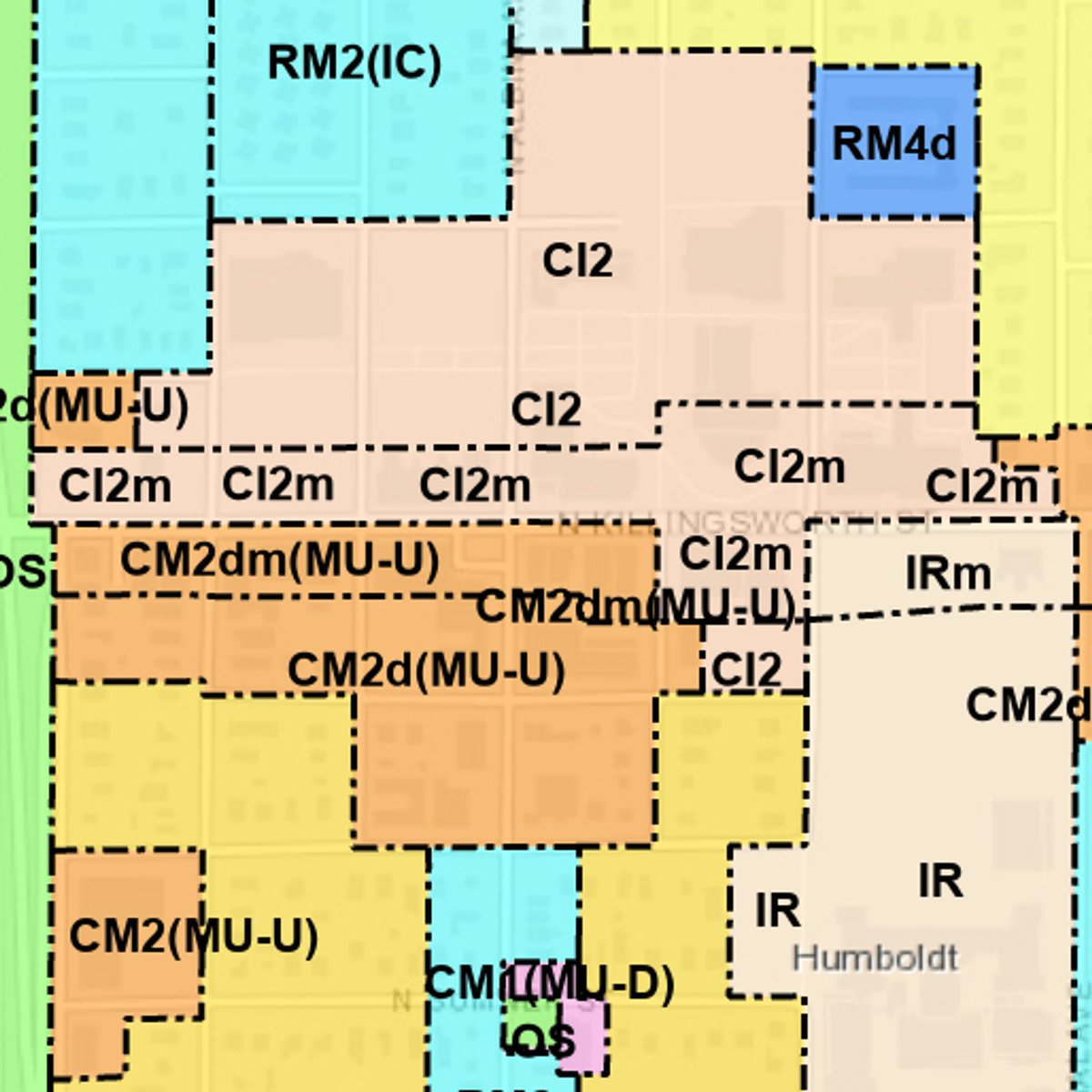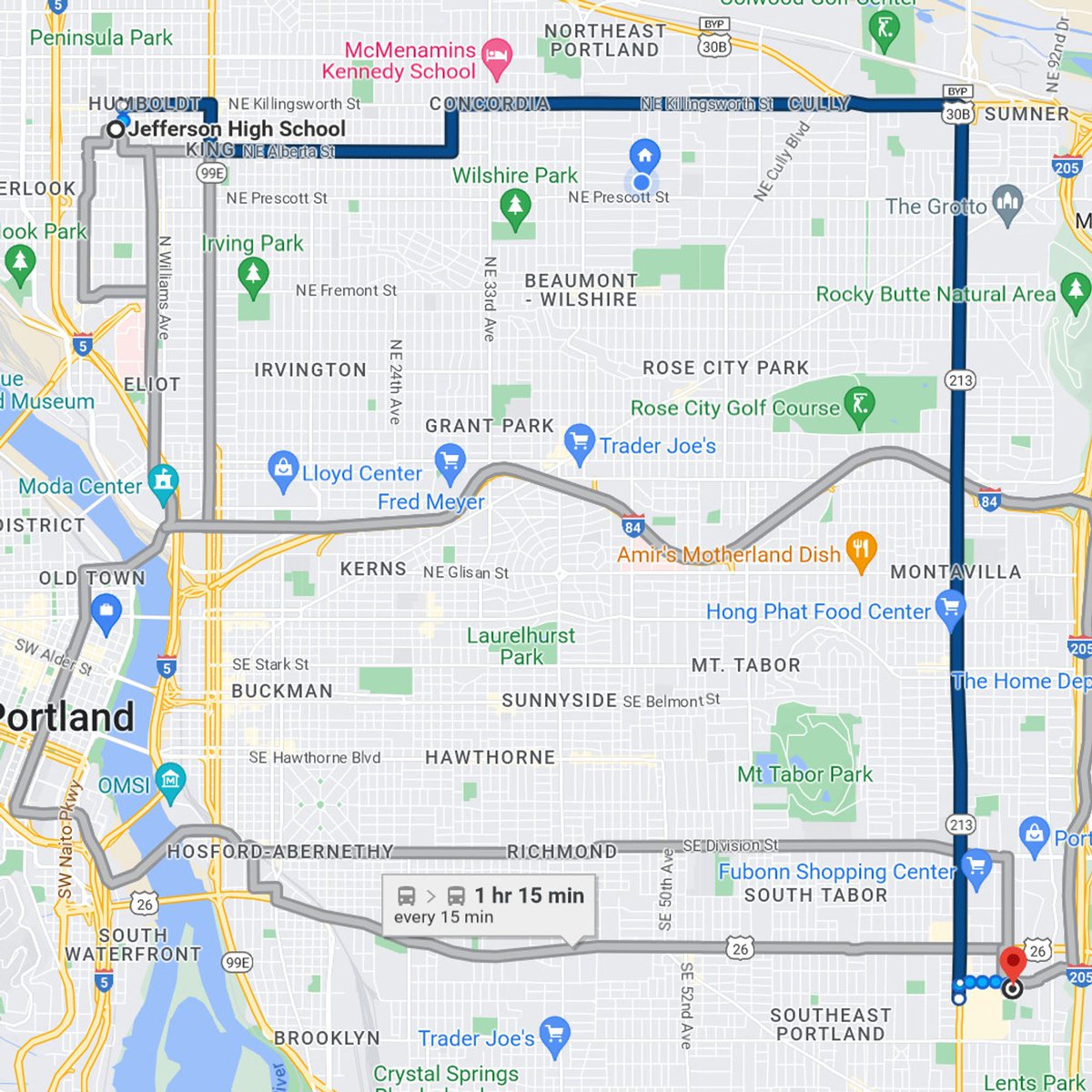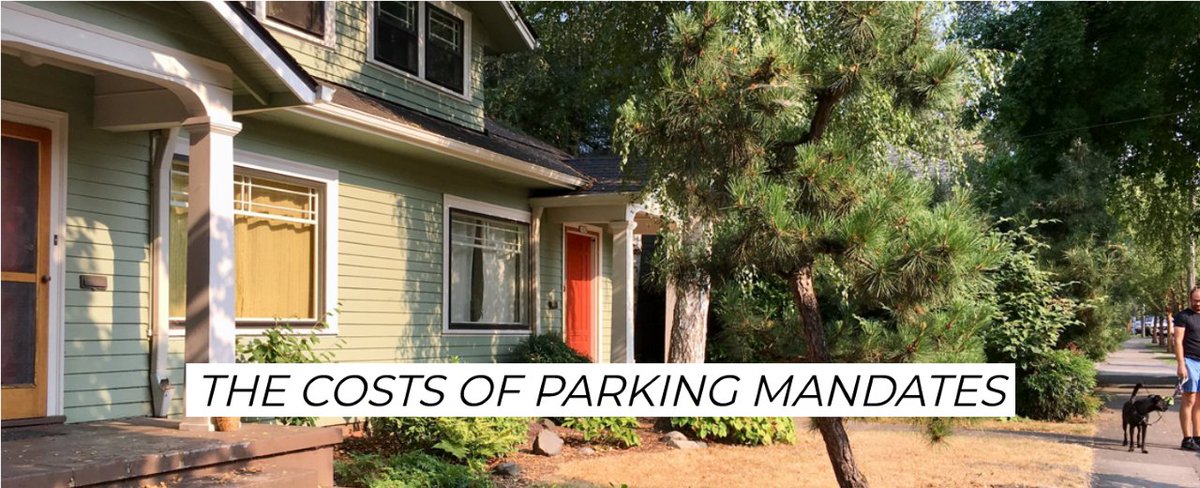If you'd like a fresh example of how zoning (a simple & fine idea) has become a micromanaging busybody that's accidentally tearing gashes in our civilization, here's one
(thread)
(thread)
1. Portland high school (with a disproportionately Black student body) is up for a remodel, cool cool opb.org/article/2022/1…
2. District concludes it can't safely do the remodel without moving students offsite. Bummer, really wish folks had known about that sooner, but OK.
3. Fortunately, there's a community college campus right across the street. Many classrooms are available because the community college has gone heavily remote. 

4. UNfortunately (hey my sister and I used to play this game), the high school is in the IR zone and the community college is in the CI2 zone
wait, what
wait, what

5. Turns out that the city's "campus institutional" zone allows "colleges" but not "schools."
"A school is not identified as an accessory use to a college," the city planning spokesperson tells me.
(For the record, this situation is very not her fault; she's correct.)
"A school is not identified as an accessory use to a college," the city planning spokesperson tells me.
(For the record, this situation is very not her fault; she's correct.)
6. Result: District concluded that because that because the zoning “could take years” to change, the college (at which many high school students have attended classes for years, it's one of the selling points of this high school) can't host the high school from 2024-27.
7. Instead, starting one year from now, current plan is relocate the student body for 3 years to another high school a 19-minute drive (and a 56-minute bus journey) away
🤯
good thing schools don't face attendance or graduation challenges these days
🤯
good thing schools don't face attendance or graduation challenges these days

8. Most of this comes from @RManning47's excellent reporting for @OPB opb.org/article/2023/0…
The good news (city spokesperson told me today) is that the city is "currently in conversations with the school district to see how we might help find an alternative solution."
(It's possible there are also other obstacles not yet unearthed by OPB's reporting, I don't know.)
(It's possible there are also other obstacles not yet unearthed by OPB's reporting, I don't know.)
But even in a rosy scenario, letting teenagers learn in otherwise empty college classrooms across the street SHOULD NOT REQUIRE AN EMERGENCY ACTION BY CITY COUNCIL or whatever.
This is one of a million ways well-intentioned zoning rules have clogged the arteries of our society's common sense.
We've self-ossified. It stops us from helping each other out: quickly building publicly funded housing. Letting someone rent a parking space across the street.
We've self-ossified. It stops us from helping each other out: quickly building publicly funded housing. Letting someone rent a parking space across the street.
Sometimes, when enough people with enough power get pissed, something changes. Usually, what they get is a targeted carveout - a special exception.
A short term win, in exchange for even more complex rules in the long run.
A short term win, in exchange for even more complex rules in the long run.
What we need most is simplicity.
But that requires politicians & public employees to say "there are a lot of things we don't actually need to control," and it requires members of the public to back them up.
But that requires politicians & public employees to say "there are a lot of things we don't actually need to control," and it requires members of the public to back them up.
• • •
Missing some Tweet in this thread? You can try to
force a refresh

 Read on Twitter
Read on Twitter









